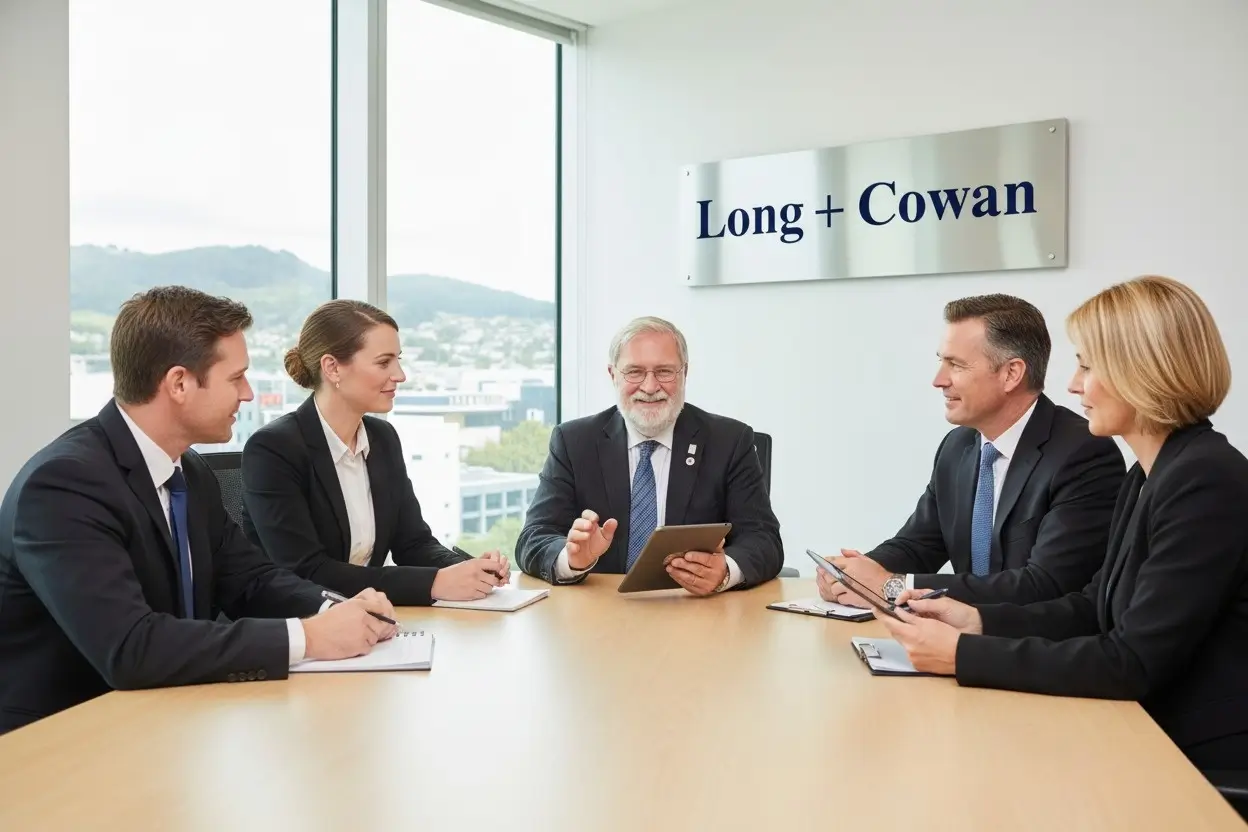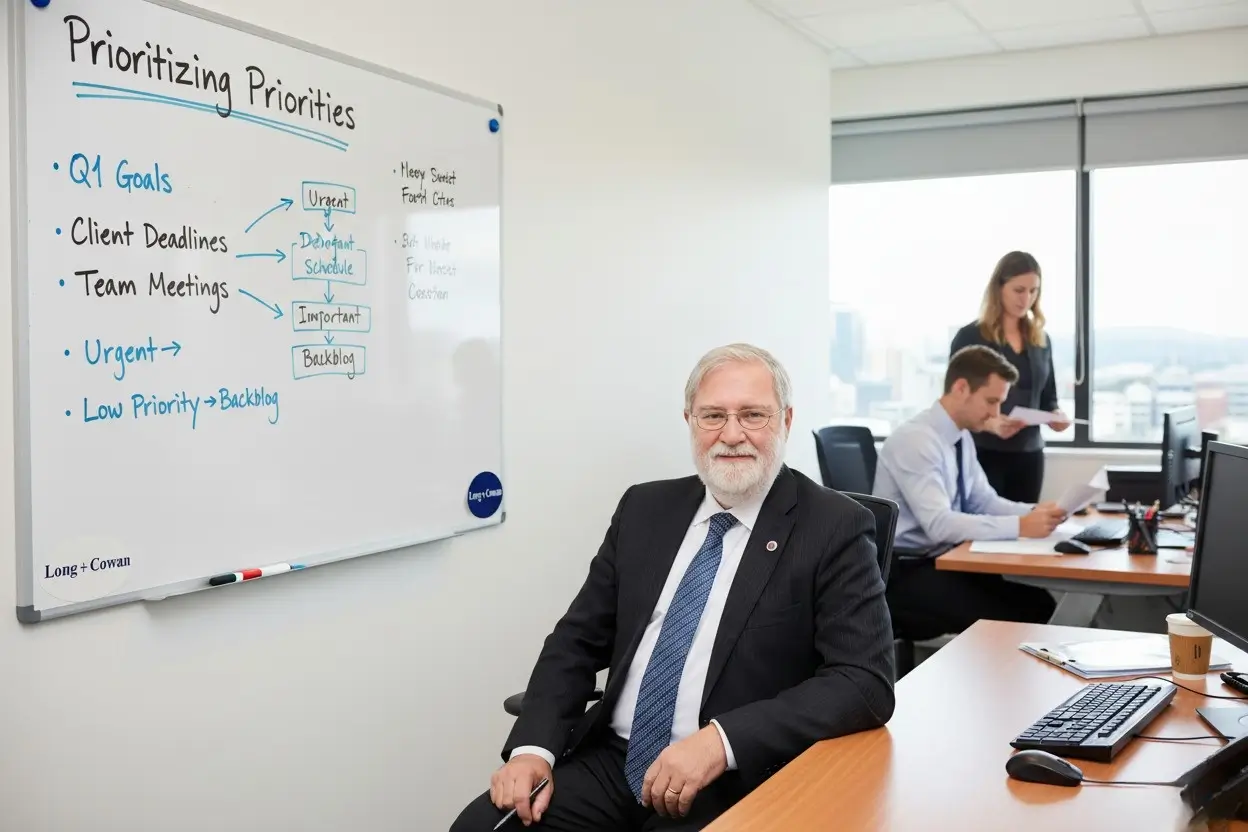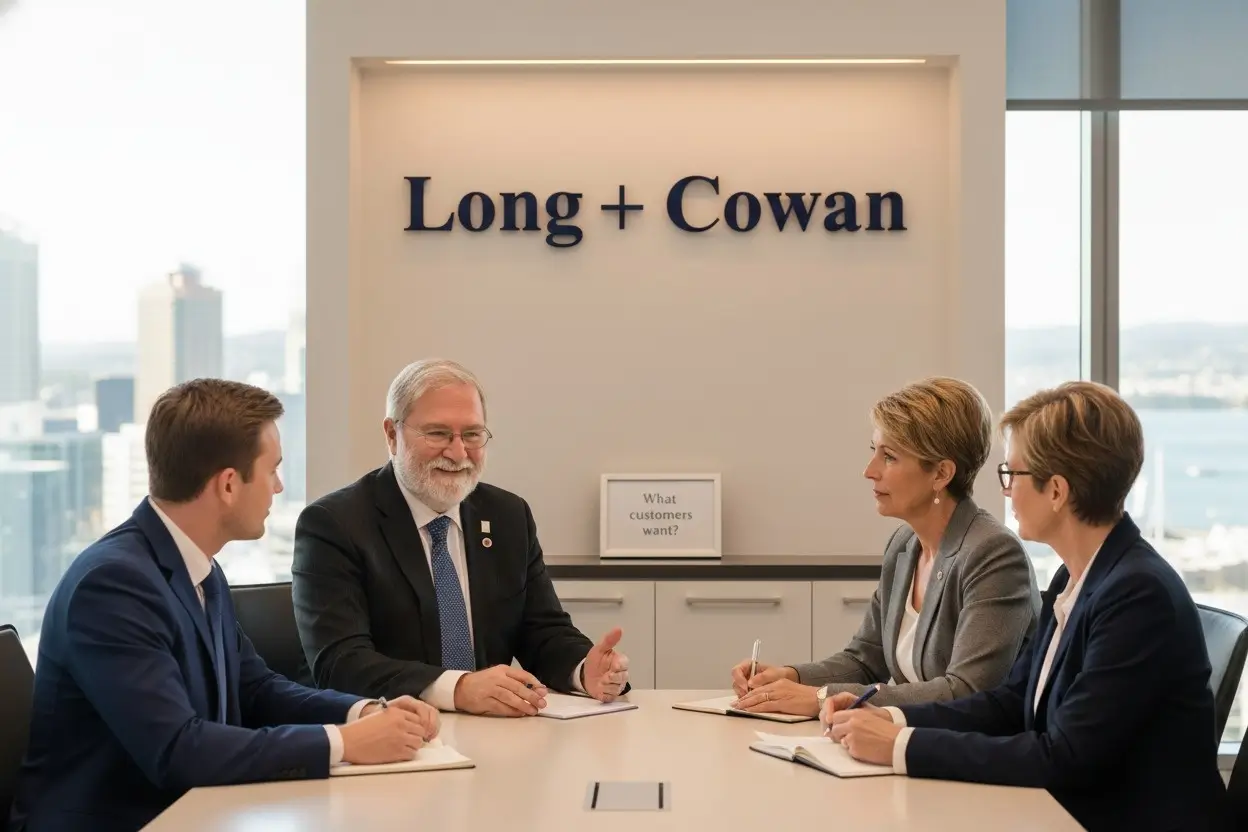Successful organisations do not rely on luck; they rely on planning. Clear business planning provides a roadmap that links goals, resources, and performance targets. Without it, decision-making becomes reactive and growth uncertain.
At Long + Cowan, we have seen Wellington businesses transform results by turning vague ideas into structured plans. A well-crafted business plan focuses effort, aligns teams, and builds confidence among investors, lenders, and clients.
Understanding the Purpose of a Business Plan
A business plan does more than outline what you intend to do. It explains how you will do it, who is responsible, and when results will appear. It combines strategic thinking with practical steps to ensure consistency and accountability.
Your plan should clarify five things: purpose, objectives, strategy, resources, and measurement. When these elements connect logically, decision-making becomes faster and more accurate. Planning translates ambition into execution.
Setting Clear and Measurable Goals
The first step in any business plan is defining goals. General aims such as “grow revenue” or “expand customer base” lack clarity. Replace them with measurable objectives such as “increase revenue by 15 percent within twelve months” or “launch two new services by mid-year.”
Specific, measurable goals keep you accountable and simplify progress tracking. When your team knows exactly what success looks like, motivation increases and performance improves.
Conducting Market and Competitor Analysis
Every plan should be grounded in research. Understanding your market helps identify opportunities and avoid risks. Analyse your target customers, competitors, and industry trends. This knowledge allows you to position your business strategically.
Consider questions such as: What makes us different? What do clients need most right now? What gaps exist in the local Wellington market? Accurate information ensures your plan reflects real conditions rather than assumptions.
Defining Your Value Proposition
Your value proposition explains why clients choose you over competitors. It must be simple, credible, and relevant. Define what you offer, how it benefits customers, and why it stands out.
For example, Long + Cowan helps businesses improve financial clarity and performance through expert accounting and advisory services. Clear value propositions make marketing easier and build client trust.
Developing a Strategic Plan
Strategy connects goals to action. It identifies key priorities, defines resources, and allocates responsibilities. A strategic plan ensures effort remains focused on what drives growth rather than scattered across minor activities.
Structure your plan around core areas such as marketing, operations, finance, and human resources. For each, outline objectives, actions, timelines, and performance indicators. This creates accountability and clarity across the organisation.
Building a Financial Forecast
Financial forecasting transforms your plan from theory to reality. Project income, expenses, and cash flow for at least twelve months. Include best-case, worst-case, and expected scenarios to prepare for uncertainty.
At Long + Cowan, we help Wellington businesses create forecasts that support bank funding, attract investors, and guide daily management. Financial clarity ensures you can make informed decisions quickly and confidently.
Allocating Resources Effectively
Resources include people, equipment, time, and capital. Allocate them to areas that create the greatest return. Overcommitting resources to low-value activities strains cash flow and slows growth.
Regularly review allocation to match current priorities. Businesses that manage resources strategically remain agile and resilient, even during economic pressure.
Establishing Operational Systems
A business plan must include operational detail. Document processes for sales, production, customer service, and financial control. Clear systems ensure quality, reduce waste, and make scaling easier.
Automation tools can support efficiency. For instance, using cloud-based accounting software like Xero simplifies reporting and compliance, freeing time for strategic work. Technology strengthens planning by delivering accurate, up-to-date information.
Monitoring and Measuring Progress
A plan only works if it is reviewed regularly. Schedule monthly or quarterly progress checks to measure performance against goals. Track key indicators such as sales growth, profit margins, and customer satisfaction.
If results deviate from targets, adjust quickly. Continuous monitoring turns a static plan into a living framework that evolves with your business environment. The discipline of review is what separates planning from guessing.
Managing Risks and Preparing for Change
Every plan must consider risk. Identify potential threats such as supply issues, regulation changes, or market shifts. Then outline steps to mitigate them. Preparation prevents panic when challenges arise.
Building flexibility into your plan ensures resilience. In Wellington’s dynamic business climate, adaptability is essential for long-term success. Review risks annually and update contingency measures as conditions evolve.
Engaging Your Team in the Planning Process
Planning should not happen in isolation. Involve your team early to gain insight from different perspectives. Employees who contribute ideas feel ownership of the plan and commit to delivering results.
Share progress openly. Transparency strengthens accountability and keeps everyone aligned with the company’s direction. Collaboration turns planning into a shared mission rather than a management exercise.
Communicating Your Plan Clearly
Once your plan is complete, communicate it simply and consistently. Summarise key objectives and expectations for different audiences such as staff, partners, or financiers. Clarity turns complex strategy into practical guidance.
Avoid jargon and keep language actionable. People engage more readily when they understand the purpose and benefit behind every initiative.
Reviewing and Updating the Plan
Business plans are not permanent documents. Review and revise them annually or after significant changes in market or performance. Updating keeps goals relevant and strategies effective.
Use data from your financial reports, customer feedback, and staff reviews to guide updates. Continual refinement maintains direction and ensures long-term stability.
Applying Business Planning Principles Across Wellington Businesses
Across Wellington Central, Te Aro, and Johnsonville, well-structured business planning gives organisations a clear advantage. Businesses that plan effectively manage change better, attract investment, and deliver consistent results.
Planning provides more than structure; it builds confidence. With clear goals, accurate data, and realistic forecasts, Wellington businesses can focus on progress rather than uncertainty.
Partnering to Strengthen Your Business Plan
Long + Cowan helps Wellington businesses create practical, actionable plans supported by financial expertise. We guide clients from goal setting to cash flow forecasting, ensuring every step aligns with measurable outcomes.
For professional advice on developing or reviewing your business plan, contact us for more info by filling in an enquiry form or e-mailing or calling us during office hours. A strong plan turns vision into results—start yours today.
















































